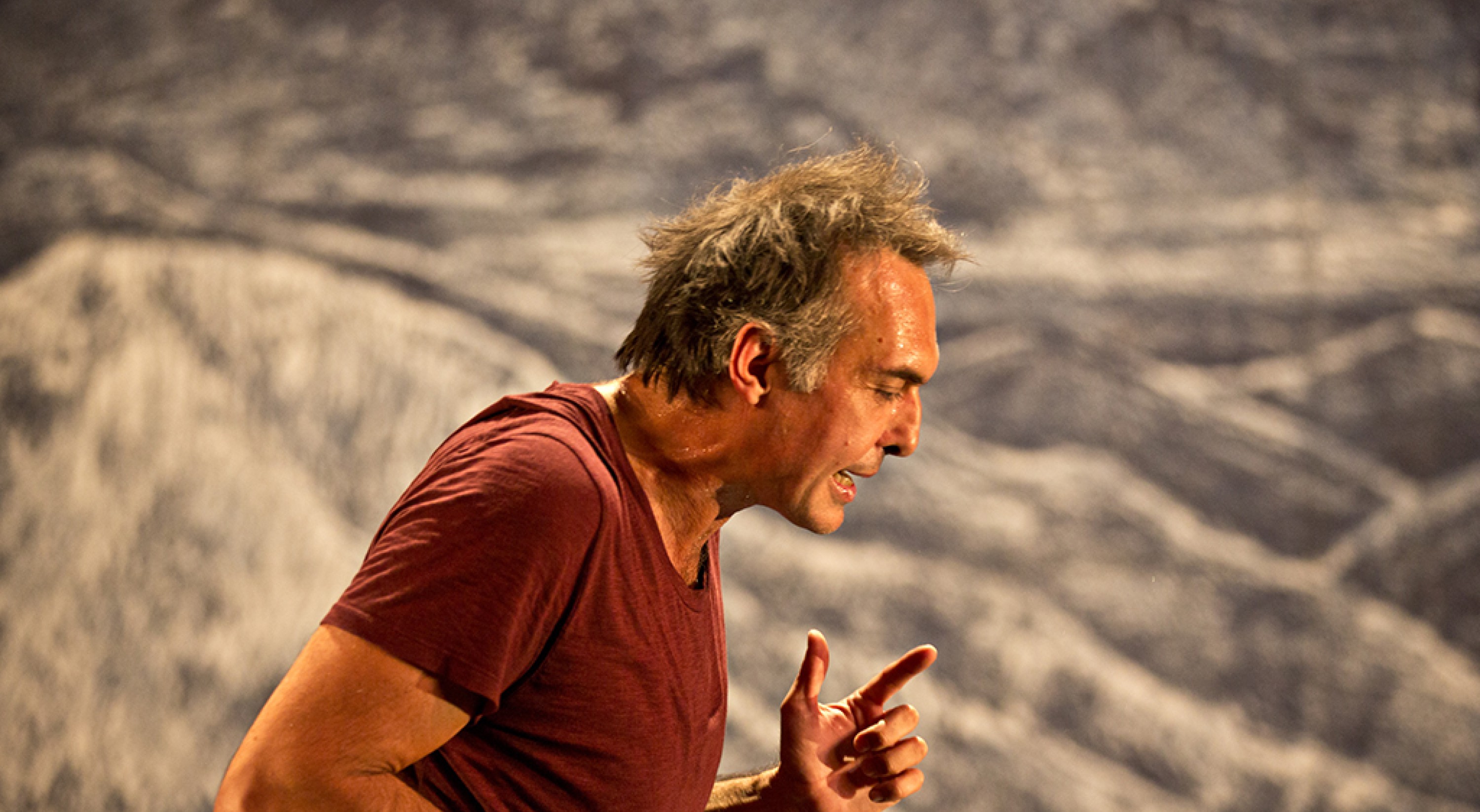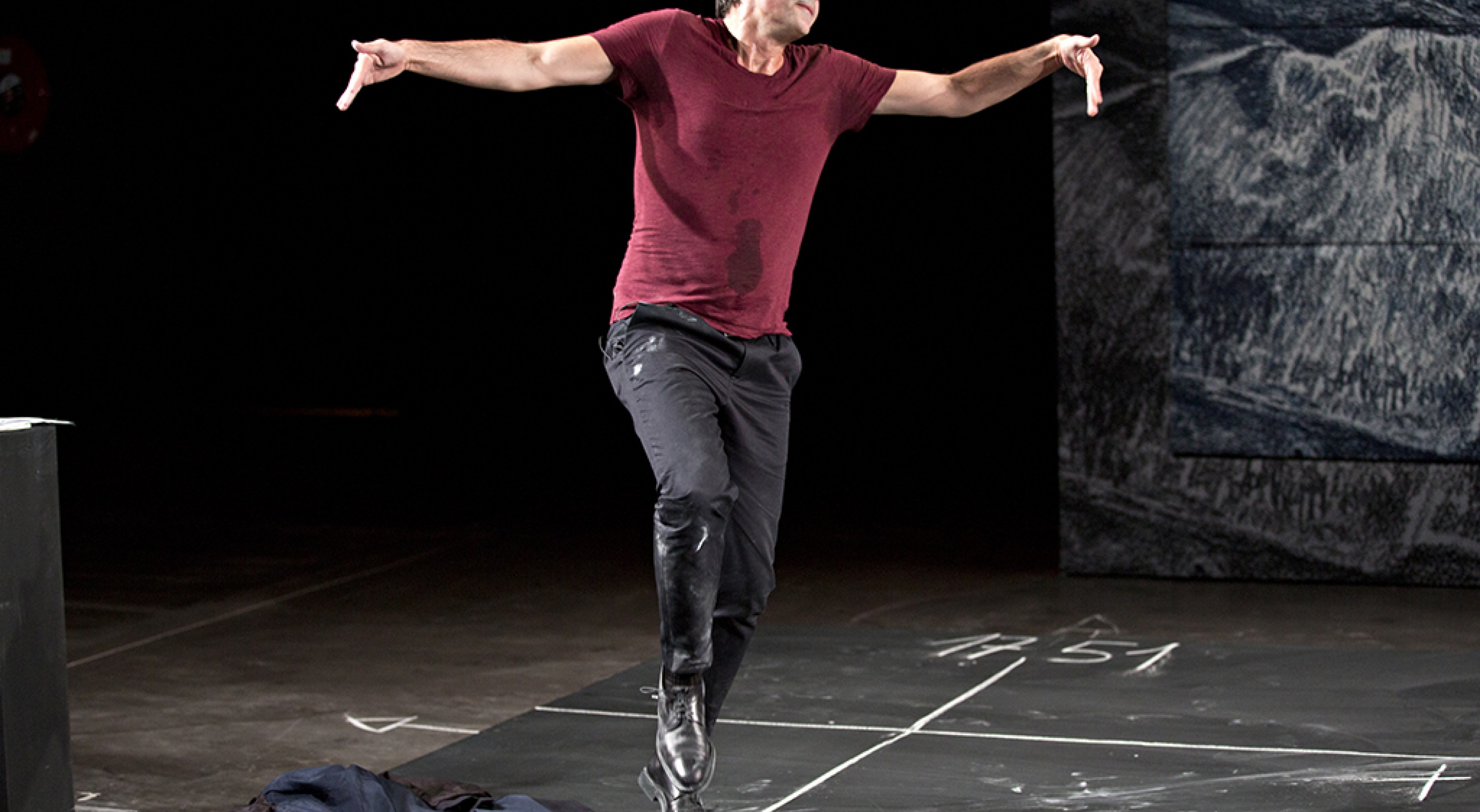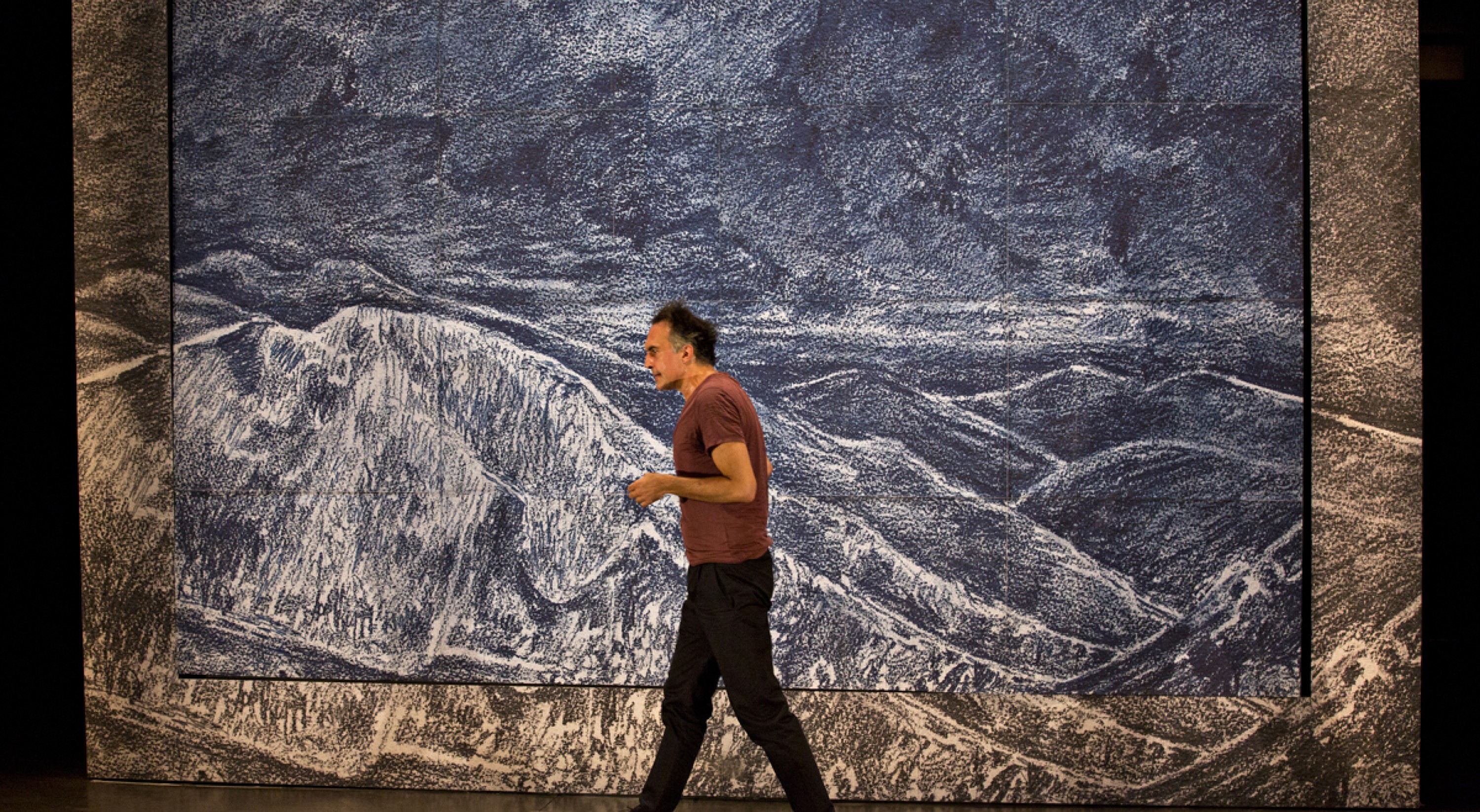Nicolas Bouchaud Éric Didry
Le Méridien
novembernov 25 - december – dec 25
Le Méridien
based on The Meridian by Paul Celan
Conceived and performed by Nicolas Bouchaud
Translation, Irène Bonnaud, Jean Launay
Adaptation, Nicolas Bouchaud, Éric Didry, Véronique Timsit
Directed by, Éric Didry
Artistic collaboration, Véronique Timsit
Lighting design, Philippe Berthomé
Stage design, Élise Capdenat
Sound design, Manuel Coursin
Stage management, Ronan Cahoreau-Gallier
An hTh – Centre dramatique national de Montpellier production // In coproduction with Théâtre National de Strasbourg ; Festival d’Automne à Paris ; Le Domaine d’O / Montpellier ; Compagnie Italienne avec Orchestre ; Théâtre du Rond-Point // In partnership with Théâtre du Rond-Point ; Festival d’Automne à Paris // The playtext is published by Éditions du Seuil
First performance on 2 October 2015 at Théâtre National de Strasbourg
In association with France Inter
With Le méridien, the voice that rings out on stage is that of Paul Celan. This was the title of the address that the poet, a Romanian Jew of German-speaking origin, delivered on receiving the Georg Büchner prize, at Darmstadt, Germany, in 1960. The Meridian is an attempt by Celan to talk of his approach to his work, his poetic reconstruction of the German language. This language, his criminalized mother tongue, was the one he was to use in countering Adorno’s assertion that “Writing a poem after Auschwitz is barbaric”. Only fifteen years after the fall of the nazi régime, it was with the theatre of Büchner that Celan decided to appear on a German stage. With his words, Paul Celan set forth the sounds of poetic outrage, a “counter-language” of a radical, searing, and innovative nature.
Following on from La loi du marcheur, stemming from the interviews of Serge Daney and Un métier idéal, an adaptation of John Berger’s work, “A Fortunate Man: The Story of a Country Doctor”, the actor Nicolas Bouchaud and director Eric Didry have now decided to tackle The Meridian. Paul Celan’s words provide a new playing space in which to ask questions about the actor’s practice and the art of representation. Onstage, Nicolas Bouchaud’s takes words and makes them into a meeting place with the audience. At the heart of the show, the outpourings of the actor converge with those of the poet, both looking to grasp that first, constantly renewed, instant when words come to us, embodied in the movement of a body, or gesture. Words, then, that are like a sign made to another person, a handshake or a bottle in a the sea. Words that speak of the struggle that unites us all, that of saying what we feel and not what we feel we should say.


